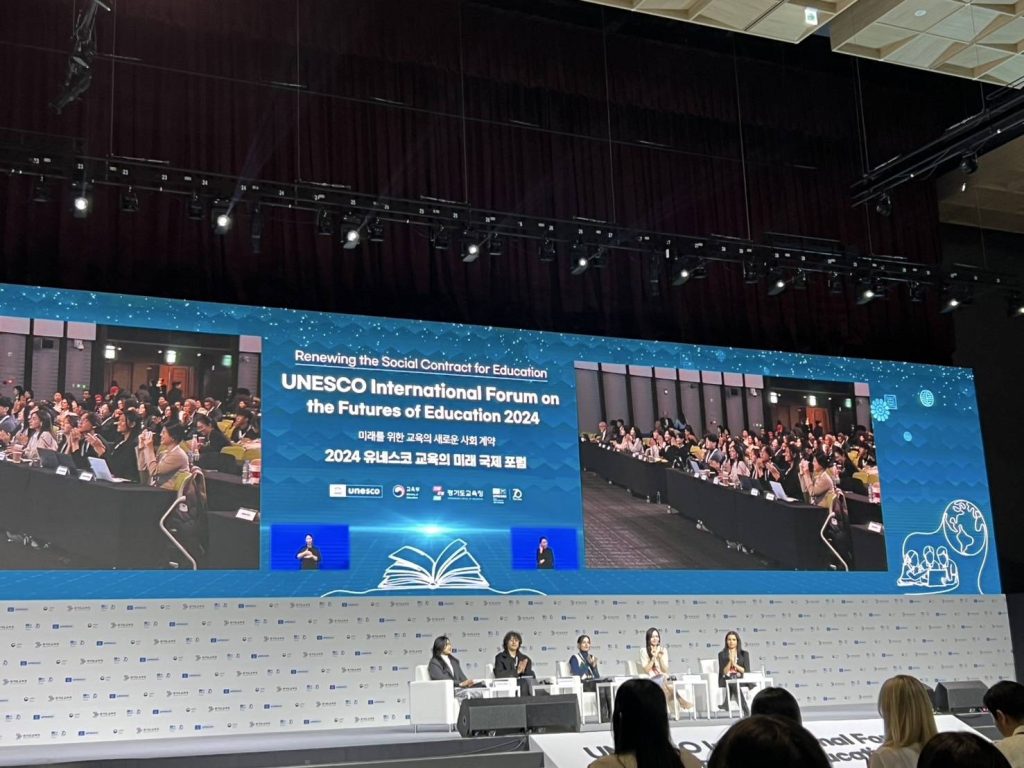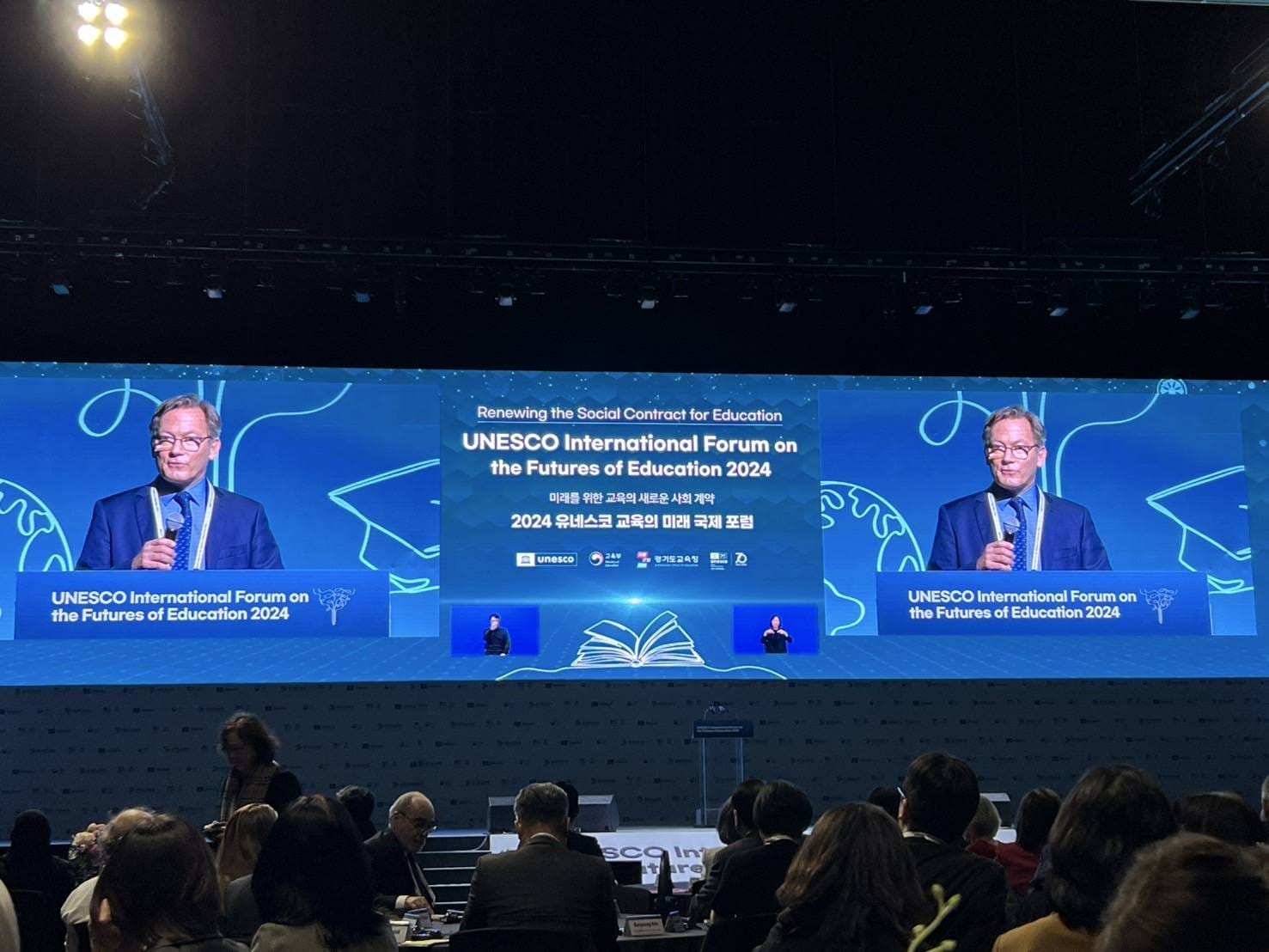The UNESCO International Forum on the Futures of Education, held in Suwon, South Korea, from Dec. 2 to 4, echoed Pope Francis’ 2022 call for a Global Compact on Education.
Over 1,800 participants, including policymakers, educators, and leaders from across the globe, gathered to discuss strategies for reimagining education to address pressing global challenges such as climate change, inequality, and the rise of artificial intelligence (AI).
In an interview with LiCAS News, Fr. Paul Ekarat Homprathum, Secretary General of the Catholic Education Council of Thailand (CECT), emphasized the synergy between Pope Francis’ vision and the forum’s objectives.
“While Pope Francis urged a broad alliance to renew our commitment to education and foster a more fraternal humanity, the forum underscored the critical need to rethink education to respond to unprecedented global challenges,” he said.
Fr. Paul Ekarat highlighted the traditional yet evolving practices of Catholic schools in Thailand, where knowledge transmission has historically been teacher-centered.
“In today’s rapidly changing world, influenced by the climate crisis, AI, and societal shifts, CECT is working closely with schools to modernize education. Our focus is on implementing the Global Compact on Education and crafting strategies for sustainable transformation,” he added.
The Call for an Educational Overhaul
The forum, hosted at the Suwon Convention Center, featured an opening address by Tae-Hee Yim, Governor of the Office of Education, who stressed the urgency of educational transformation.
“The ever-changing world, increasingly shaped by AI, climate issues, and social inequality, necessitates a reevaluation of education systems. We hope this forum becomes a catalyst for cooperative frameworks to share policies and research on educational innovation,” he said.
Dr. Steven Chana Kitikiattisak, director of Maryvit School, a private Catholic institution in Thailand, shared his reflections on the forum’s discussions. He noted the alignment between the forum’s themes and Pope Francis’ call for inclusive and transformative education.
“The forum emphasized the importance of fostering a shared passion for education rooted in listening, constructive dialogue, and mutual understanding—values central to the Holy Father’s vision,” Dr. Steven told LiCAS News.
Dr. Steven also highlighted the forum’s concept of a “Social Contract for Education,” calling it a framework for collective action. “The forum calls on every country, organization, and sector to participate in reshaping education for the future. This is perhaps the only path to addressing the crises of conflict, environmental degradation, inequality, and the disruptive impacts of technology like AI,” he said.

Dr. Steven praised UNESCO for incorporating young voices into the forum. “UNESCO dedicated a session to youth participation, allowing us to hear their reflections. It was clear that young people want a direct role in shaping the educational systems that impact their lives. Their voices are crucial as we chart the future of education,” he noted.
A Vision for Catholic Schools
Reflecting on the implications for Catholic schools, Dr. Steven emphasized the need to embrace a more participatory and inclusive approach.
“In Catholic schools in Thailand, including my own, we need to increase student involvement, foster environmental stewardship, and collaborate across sectors. This will help build a future rooted in justice, peace, and dignity for all,” he said.
He reiterated Pope Francis’ call for a “broad educational alliance” to form individuals capable of overcoming divisions and fostering unity.
“This vision aligns closely with the forum’s emphasis on collective action and dialogue to address shared challenges,” Dr. Steven added.
Charting a Collaborative Future
The UNESCO International Forum on the Futures of Education concluded with a commitment to collaborative solutions.
“Sharing and learning from diverse, context-specific experiences is essential for renewing education and transforming the future,” said Dr. Steven in his closing remarks.
The forum underscored the urgent need for inclusive, sustainable, and adaptive education systems, reinforcing a shared vision of shaping a better future for humanity through education.






